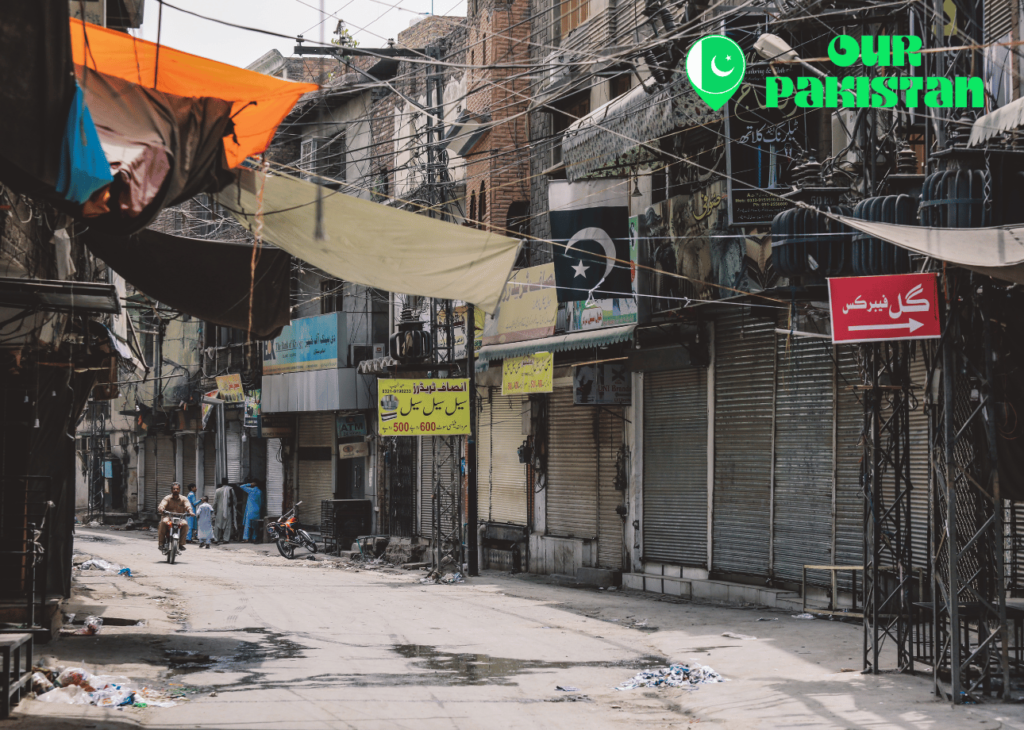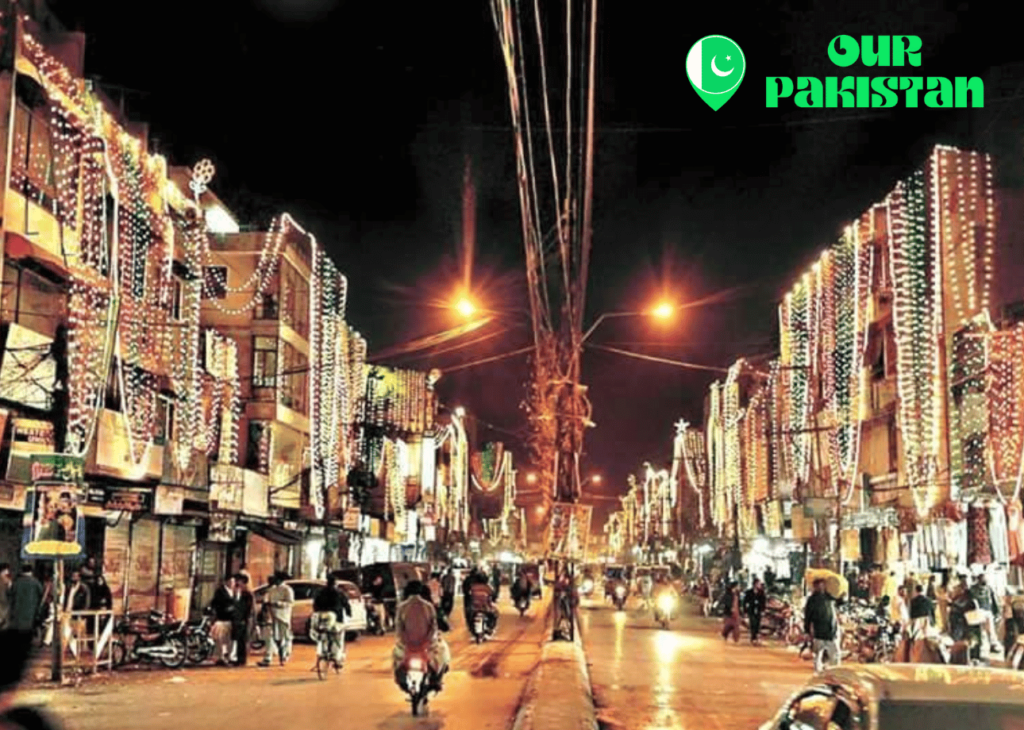Pakistan boasts a rich cultural heritage that is intricately woven into the fabric of its society. The country’s vibrant bazaars, with their diverse range of products, traditional crafts, and cultural elements, truly exemplify this heritage. These bustling marketplaces offer an immersive shopping experience like no other, introducing visitors and locals alike to the sights, sounds, and aromas of Pakistan’s vibrant shopping culture.
Lahore’s Anarkali Bazaar
Located in the heart of Lahore, Anarkali Bazaar stands not only as one of Pakistan’s oldest markets but also as one of its most famous. Steeped in historical significance, this bazaar dates back to the Mughal era, making it a treasure trove of heritage. As visitors step foot into Anarkali Bazaar, they are welcomed by a bustling atmosphere filled with vibrant colors and alluring aromas. From traditional clothing and exquisite jewelry to handicrafts lovingly crafted by local artisans, Anarkali Bazaar offers a diverse range of goods for shoppers to explore. And let’s not forget the mouthwatering local delicacies that tantalize the taste buds.
Peshawar’s Qissa Khwani Bazaar
Qissa Khwani Bazaar, located in the ancient city of Peshawar, captures the essence of Afghan, Central Asian, and Pakistani cultures in its products and ambiance. This historical center for trade and storytelling is a haven for shoppers seeking unique items. The bazaar is particularly famous for its traditional carpets, which boast intricate designs and exceptional craftsmanship. Tribal jewelry, with its bold and distinctive style, is another highlight for those looking to adorn themselves with pieces reflecting the region’s rich heritage. And no visit to Qissa Khwani Bazaar is complete without indulging in the aromatic spices that effortlessly infuse the air with their tantalizing scents.

Karachi’s Empress Market
Standing as a testament to architectural beauty and colonial-era charm, Empress Market in Karachi is a must-visit for any shopping enthusiast. This bustling market offers an incredible array of fruits, vegetables, and spices, giving shoppers a glimpse into Pakistan’s vibrant culinary scene. Beyond the tantalizing aromas of the food sections, Empress Market also reveals a treasure trove of textiles, leather goods, and souvenirs. From luxurious fabrics to intricately crafted leather items, visitors can find unique pieces that beautifully reflect the diversity of Pakistani craftsmanship.
Rawalpindi’s Raja Bazaar
Raja Bazaar, located in Rawalpindi, holds tremendous cultural significance as a traditional trading hub in the region. Fashion enthusiasts will find themselves in paradise as they delve into the world of traditional clothing, shoes, and fabrics. Adorned with intricate embroidery and reflective of the region’s rich textile traditions, these fashion pieces are a true testament to craftsmanship. Raja Bazaar also caters to varied tastes, blending the old with the new. From modern fashion trends to traditional attire, this bazaar ensures there is something for everyone.
Quetta’s Liaquat Bazaar
Nestled near the border with Afghanistan, Liaquat Bazaar in Quetta thrives as a result of its strategic location. This market buzzes with activity, offering an assortment of dried fruits, nuts, and traditional Balochi crafts. Shoppers can feast their eyes on the vibrant colors of the handcrafted items, which serve as delightful reminders of the region’s rich cultural heritage. What truly sets Liaquat Bazaar apart, however, is the warm hospitality and friendly nature of the local shopkeepers, creating a truly welcoming and immersive shopping experience.

Multan’s Hussain Agahi Bazaar
Hussain Agahi Bazaar in Multan takes shoppers on a journey through history with its traditional pottery and ceramics. It holds significant cultural importance, with the craftsmanship of blue pottery reflecting the city’s rich heritage. Visitors will be captivated by the intricate designs adorning the tiles, vases, and decorative items. These handcrafted pieces serve as excellent souvenirs, allowing travelers to bring home a piece of Pakistan’s cultural legacy.
Conclusion
In the vibrant bazaars of Pakistan, shoppers are transported to a world that beautifully encapsulates the country’s rich culture and heritage. From Lahore’s Anarkali Bazaar to Multan’s Hussain Agahi Bazaar, each market offers a unique and immersive shopping experience. We encourage tourists and locals to explore these bazaars, discovering the diverse range of products, traditional crafts, and cultural elements that make Pakistan’s shopping extravaganza genuinely remarkable. To learn more about Pakistan’s diverse attractions and for comprehensive travel guides, visit our website and embark on a journey like no other.